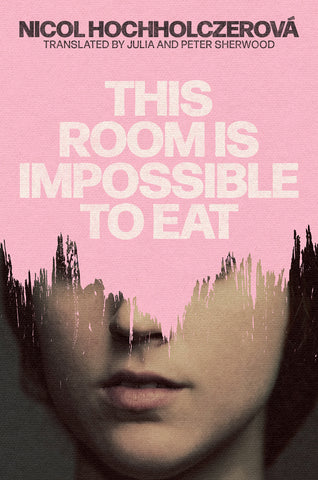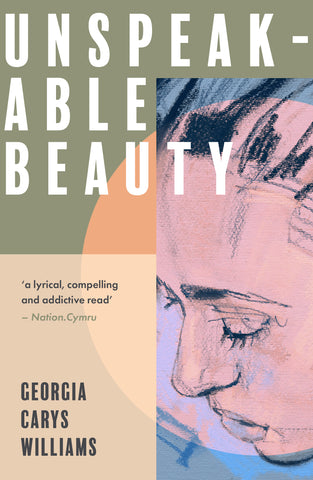(Madara Gruntmane, from Narcoses)
 The Parthian Baltic series introduces contemporary Baltic writing to an English-speaking audience. Many of these writers have been translated into English for the first time. The process of translating writing from one language into another involves more than a simple translation of words – it is a translating of cultures, values and meaning. Parthian asked one of the Parthian Baltic authors, Latvian poet Madara Gruntmane, and translator, Richard O’Brien, for their insight into the process.
The Parthian Baltic series introduces contemporary Baltic writing to an English-speaking audience. Many of these writers have been translated into English for the first time. The process of translating writing from one language into another involves more than a simple translation of words – it is a translating of cultures, values and meaning. Parthian asked one of the Parthian Baltic authors, Latvian poet Madara Gruntmane, and translator, Richard O’Brien, for their insight into the process.
Richard, you are a poet yourself as well as a translator, and Madara, you have also recently started translating British poetry. Do you think it helps the translation process when the translator is also a poet themselves?
MG: Of course it helps. Because the poet usually has a very strong imagination and highly developed sensitivity, it certainly helps with translation.
RO’B: This is inherently a biased answer, but yes I think it’s important – largely because translation and poetry both involve equal amounts of flair and problem-solving. The danger is obviously that you end up making the poet whose work you’re adapting sound like yourself if you have a strong individual voice, but Madara’s style is very different to mine so I didn’t feel that was a risk here.
To what extent do you think that translating poetry is also a creative process, rather than a purely technical or mechanical process?
MG: In my opinion, translating poetry requires more of a creative process than a technical one.
RO’B: I agree – after all, writing poetry isn’t purely technical or mechanical, and the end result has to be something that works as a poem in English. The translators I really look up to often produce something that might more accurately be described as a ‘version’ – for example I’m obsessed with the singer-songwriter Jake Thackray’s adaptations of Georges Brassens’s songs from French to English. You’re finding things that work for English readers or listeners the way they work for their original audience. I have been far more conservative with Madara’s work than Thackray is! But there were a couple of moments, for instance, where we agreed to add in phrases not found in the original that would help to clearly introduce this new voice to Anglophone audiences.
How closely did you work together on the translation? Do you think it is important to have a working relationship between poet/translator?
MG: We actively exchanged emails, commented on each other, asked and explained. It was very exciting for me - I had a feeling that I knew Richard for ages. When we met in Birmingham, there was no room for confusion, as it often is when you meet people for the first time, we already knew each other.
RO’B: It helped, of course, that Madara is very fluent in English herself, so when I offered her versions of lines to choose between I always knew that she would have a clear understanding of the different levels of register, tone and so on that each implied. The only thing to add is that I did a full version of the book first before sending it back to Madara, rather than working poem by poem – then she sent her comments, I made my changes, she had new comments, and so on. I added a lot of marginal annotations – ‘This is what I’ve tried here, does it make sense for you?’; ‘Is this what the Latvian actually says, or have I misread Marta’s version?’ and so on. Having a working relationship is especially important when the final-stage translator doesn’t speak the source language – I was working with great versions of the poems by Marta Ziemelis, but sometimes I just needed Madara to tell me exactly what she was thinking where I couldn’t fully parse the Latvian text.
What has been most interesting/exciting/challenging about the process for each of you?
MG: The most challenging thing for me was to go back to my poems. But this happened differently, because I was forced to strip the emotions that triggered the creation of the particular poem. It's not easy to talk about yourself. I felt like Richard now owns my X-rays.
RO’B: The biggest challenge has been to make sure that Madara sounds like Madara, to the best of my knowledge and ability. The two other Latvian poets I’ve translated (Ieva Flamingo; Juris Kronsbergs) have worked quite heavily with rhyme and form, which is really where I sit most naturally as a poet myself. But Madara’s style is sparse, clean, minimal, and often has a certain numbness to it – I really wanted to bring that out, and every time I felt I’d been too florid or too wordy we worked together to strip it back as much as possible. This was also the most exciting and interesting thing!
We often hear the phrase ‘lost in translation’, do you think it is possible to really translate poetry or do you feel that something is inevitably lost in the process?
MG: It is certainly possible to get lost if the poet and translator do not cooperate with each other.
RO’B: Madara made a really interesting point when we met in Birmingham, about how every language has particular things it can and can’t do well. So at best perhaps, as Joni Mitchell puts it, ‘something’s lost and something’s gained.’
What do you feel the English-speaking public will gain from the translation of this poetry and other Baltic literature? What have we been missing?
MG: This is a question I think Richard should answer.
RO’B: I wouldn’t presume to speak for Baltic literature in any general sense, other than to say that in all three poets I’ve worked on – and in the Estonian poet Contra, who the Emma Press will be publishing later in the year – there is often a very unusual, oblique way of looking at things which (once you realise it’s not simply you being confused by the translation) is really quite refreshing. Even in Madara’s book, which often deals with some quite traumatic subject matter, there’s a sense of play in many of the poems. But really I want to stress how well I think Madara will fit into the current UK poetry scene – there’s a bracing openness that reminds me of Melissa Lee Houghton, and a kind of surreal crispness, at once flat and razor-sharp, that I associate with writers like Emily Berry, Rachael Allen, or Jenna Clake. So, at the risk of sounding like some small-town mayor, I actually think Madara’s book will be quite at home here!
For Madara - What is the most important element of your poetry that you hope is retained in this translation? And for Richard – For you, what was the most important element that you hope your translation captured? What was the most challenging aspect of this translation project?
MG: The most important thing I offer is openness and the courage to talk about things that we may not be allowed to talk about on a daily basis. I very much hope that with my poetry, I will help somebody to not feel alone and maybe give readers a push to get a better look at the complexities of life.
RO’B: Perhaps the only thing to add to the above is that I felt a real responsibility to this deal – it deals with trauma and its aftermath in a way which is often very particular to a female voice and a female body. As a male translator, I knew there was a lot about these poems which was well beyond my lived experience. So I’m very grateful to Marta for producing such clear translations to work with, and to Madara for being so open and so generous in her collaboration on this project.
Narcoses is available for pre-order now from www.parthianbooks.com
**********
If you have questions of your own, Richard O’Brien will be live on our Twitter Takeover, March 21st from 1-2pm @parthianbooks. Questions can be emailed in advance to lauramayw@live.co.uk.


